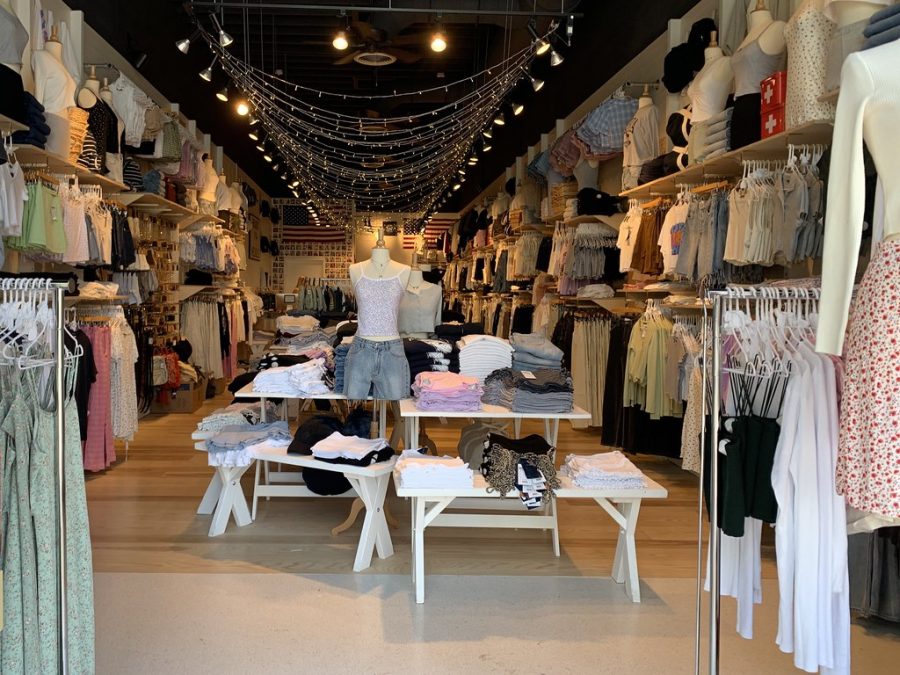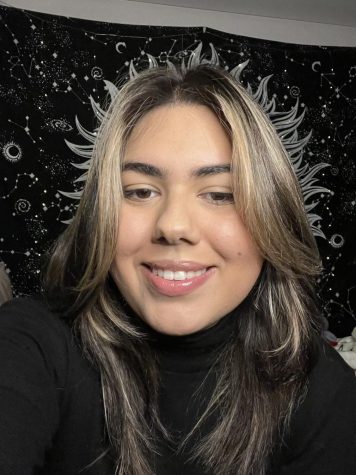No, one size does not fit all — and it is time we change that.
The body positivity movement has its roots in the 1960’s “fat-acceptance movement” to end fat shaming. A seed was planted for what would become a movement fighting to accept and love all body types. This movement is trending, especially on social media, but some clothing brands are still reluctant to adjust their wardrobe.
As a young woman who grew up with many insecurities for not fitting into society’s beauty pattern, seeing women with bodies like mine on billboards warms my heart. Yet, I still struggle to find clothes my size, which brings back uncomfortable teenage memories.
“Why does she get to wear that pretty dress and I don’t, Mom?” “How do I change my looks?”
You don’t need to change your looks; society and clothing brands must change theirs. Brandy Melville is one of the leading brands still believing in the “one size fits all” motto, but that’s outdated. Labeled as laid-back fashion, their target audience is size 0-4 people that are the spit of society’s beauty pattern, proving their clothes don’t fit all. They only fit a few.
“One-sized” clothes exile young adults who don’t have the “ideal” body type without realizing the trauma they might be creating for them. Instead of contributing and acknowledging the remarks made by body positivity and fat-acceptance movements, these brands are going against the tide, and not in a good way.
No body is the same, so the idea of “one-sized” clothing is ridiculous. Being reluctant to adapt their sizing charts to be more inclusive is to depreciate all the effort of the body positivity movement.
Women grow up with the idea that they have to be skinny and pretty to be cool and fit into society, but that is all made up. Unfortunately, Brandy Melville and other brands with the “one size fits all” tag in their clothes reinforce these old stereotypes. That’s not only a trigger for people but can also affect their physical health. How far would someone go to fit into this pattern?
As a society that has evolved so much, why can’t we break those stereotypes? It’s so sad to witness young people facing the same insecurities with their bodies that I had to deal with almost 15 years ago.
The body positivity movement must continue so more people can love and accept all body types. But those “one-sized” brands need to change their mindsets so the generations yet to come don’t have to ask their parents if “there is something wrong with their appearance” like I did years ago.










Shannon Maniloff • Apr 12, 2024 at 5:09 pm
There are something so wrong with this brand. Most women are a size 8 to a 16. This is ridiculous.
K Jones • Aug 29, 2023 at 4:33 pm
Brandy Melville never claimed to be “one size fits all”, simply “one size” and that size is petite. It’s obvious that a cotton tee or pair of jeans could never be one size fits all. Could this still be harmful to growing teens who want to look like Brandy models and fit the clothing? Sure, but that problem cannot be solely attributed to Brandy Melville as it is a problem across societal standards as well as the fashion industry. Brandy Melville is no different from a plus-size clothing store– it is meant for a specific sized consumer, not meant to push some agenda that every woman should be a certain size to fit in. One-sized clothing seems limiting but it is far from the majority of fashion/clothing producers, and simply put, if you are not the target audience shop somewhere else.
Val • Dec 17, 2023 at 10:45 am
Yeah, it sounds like their business model is 1) not making more than one size (huge advantage in inventory) and 2) catering to women who often end up having to shop in the children’s section – a lot of brands don’t go below a 6 or maybe a 4, and then those are in short supply.
The point of the article stands, but not in relation to this particular store as described.
Camille • Oct 16, 2024 at 3:12 pm
Brandy Miller did start out with the “one size fits all” model and received so much criticism they changed their labeling to “one size”. Since their models and, most importantly, ALL of their sales people, are also that one size (by requirement) healthy and very unhealthy, their message very clearly is: “tiny girl-woman is the perfect woman” = VERY dangerous for their teenage target audience.